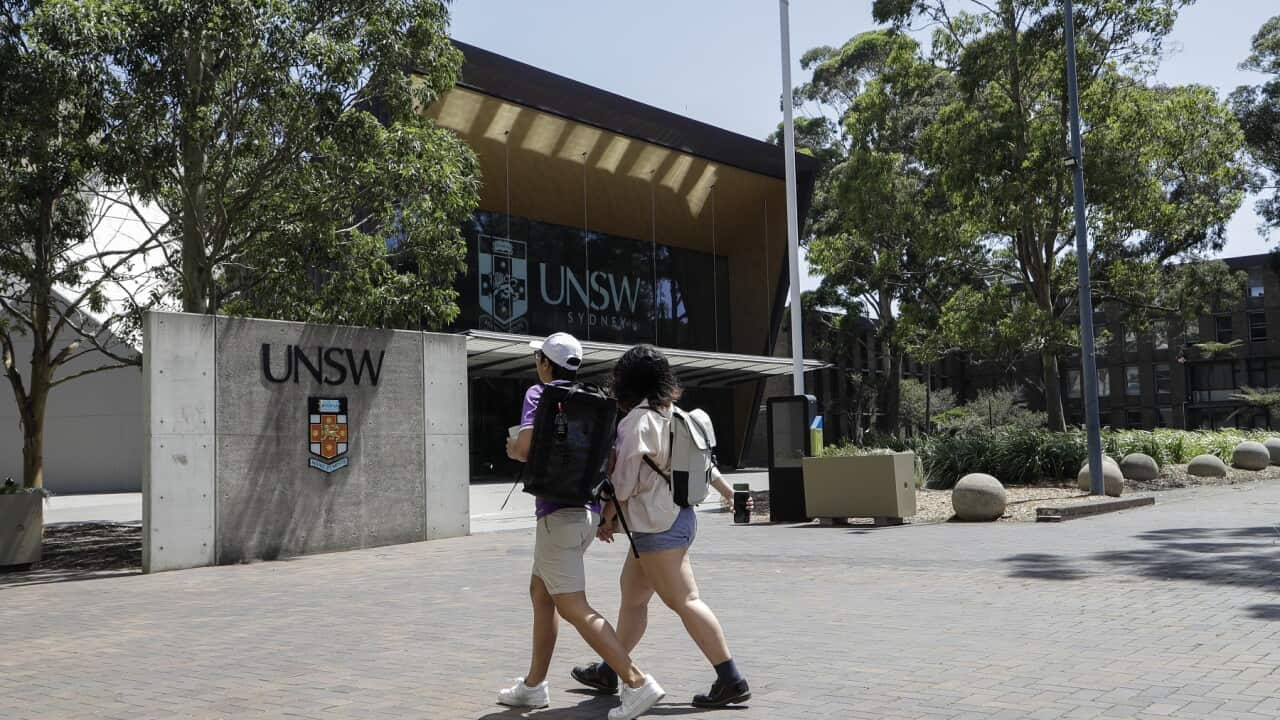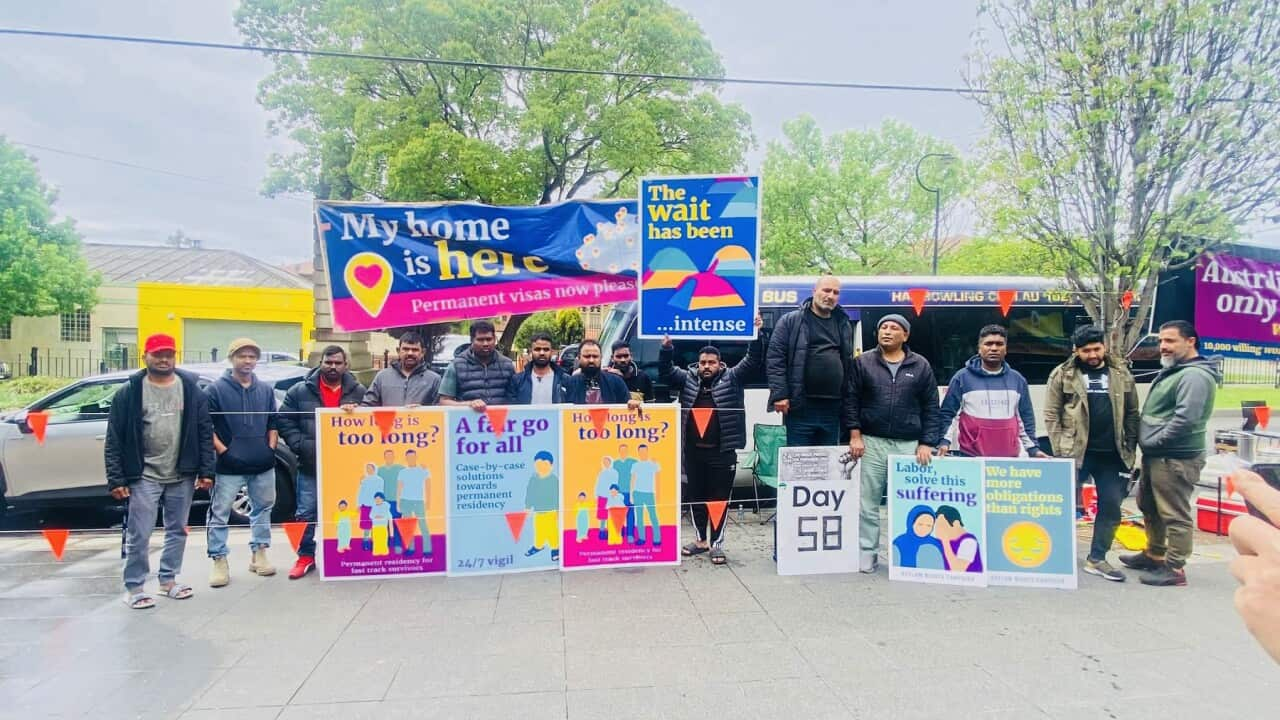TRANSCRIPT:
"It's important to send a message to the world that we want students to come here to study. But we want a managed system, not a free for all system."
That's Education Minister Jason Clare, announcing that international student numbers will be capped from next year.
In total, 270,000 students will be able to start studying in Australia in 2025.
There will be 145,000 places available at publicly funded universities, similar to 2023 levels, whilst vocational education sector will see a 20 per cent reduction on previous levels, with just 95,000 places available.
Mr Clare says the cap extends down to each provider.
"What we're not doing here is setting an artificial or arbitrary level for universities about the proportion of students that can or should be international students, we're not doing that. What we are doing is setting levels for each individual university."
Universities have now received correspondence from the government outlining the number of students they would be able to take, although that information is yet to be made public.
The Group of Eight, comprised of Australia's most research intensive universities say they estimate there will be a 30 per cent cut in places across their institutions next year - and they've already sent offers for placements to many students.
CEO of the Group of Eight Vicki Thompson says the impact of the change will be felt across the sector.
"Well, it was bad policy yesterday and it's equally bad policy today. Nothing's really changed, other than we now have a number. We don't know where that number's come from. We know there's been no economic modelling to arrive at a figure. We know that this is going to have an absolutely, incredibly bad impact on our universities, and in particular, our group of eight universities. It seems the government is intent on steamrolling through a piece of legislation which is yet to be passed by the Federal Parliament, as it turns out, at the expense of our universities."
The government says the caps will ensure the sector is sustainable into the future, but will also help limit overseas migration levels.
There was a 73 per cent increase on arrivals in the last financial year to Australia compared to the year before, with concerns from the opposition and some in the community about the impact that has had on the housing system.
Research and Policy Director at the Australian Centre for Student Equity and Success, Professor Ian Li, says the move seems to be a response to those concerns.
"It seems to be a reaction from a government that's concerned about the housing crisis. So capping of international student numbers, surely the motive must be due to other pressures that exist, really, outside of the university sector."
But the Professor says just because you change where students can enrol, it doesn't mean they'll want to study there.
"Students are basically the one who choose universities. Universities can do some things in their power to market themselves and make themselves attractive, but ultimately, the choice lies with the students. So students are not going to start suddenly going to another university because that particular university has got a, you know, capacity and has a higher cap."
And the move could damage Australia's reputation overseas.
"I think this is a reaction to housing crisis that is unlikely going to have much effect at all, but I think it will risk damaging the sector and the country's reputation in the long term. And, you know, people have spent decades building up this reputation, but it's very easy to destroy."
Minster Clare says the reputation is already damaged - because of a ministerial direction issued last year.
"Universities are feeling the impact of this right now. There is a defacto cap right now. It is just that some universities have benefited from ministerial direction 107 and others have been hit hard by it, they're the ones bearing the brunt of this."
Introduced by then Home Affairs Minister Clare O'Neil, Ministerial Direction 107 created a priority framework for student visa approval decisions.
It meant that visas were prioritised for students looking to attend better universities, or who were looking to study more than one course.
It attempted to limit migration, but Jason Clare says it has created an inequitable system favouring some universities, and the government plans to repeal it.
"Talk to some of the vice chancellors of regional universities now and they'll tell you visa processing is taking too long, it's having a negative impact of the reputation of the sector and their university, and that we need to set up the system differently."
One of those regional universities is the University of New England, located in Armidale, a regional town of about 25,000 people half way between the Gold Coast and Sydney.
It's been allocated a cap of 700 international students next year - a steep increase on the 205 commencements this year.
Vice Chancellor Chris Moran says they're happy with the allocation.
"The number we've received, we think is a reasonable number. We're the lowest enrolling international university at the moment in Australia. So we would expect us still to remain at a modest level, the main issue for us is the awarding of visas."
But is concerned about how visas will be processed in time for next year.
"After the ministerial direction came in, we received only 44 visas from 1000 applicants. So we need a reversal. We need a prioritisation of visa awarding so that these caps make sense."
With the changes coming in just a few months, Yvonne Yeo from the Australia-International Institute of Workplace Training says training colleges are also scrambling to figure out their approach.
"The key stakeholders are huge, you have your staff, you have the agents from overseas, you have the students from overseas, and you have the parents from the students overseas, right. How do you do any planning for students overseas, you can't put them on hold."
The student caps are part of a larger legislative agenda in the higher education sector.
To implement the caps, legislation will need to be passed.
It's already made it through the House of Representatives, and will soon reach the senate.
The opposition has been calling for migration cuts, demanding action to take pressure off housing - but education spokesperson Sarah Henderson says the process for the caps has been messy.
"It has been chaos, and so we will await to see what happens in terms of the actual bill because so much about this bill is still not known."













